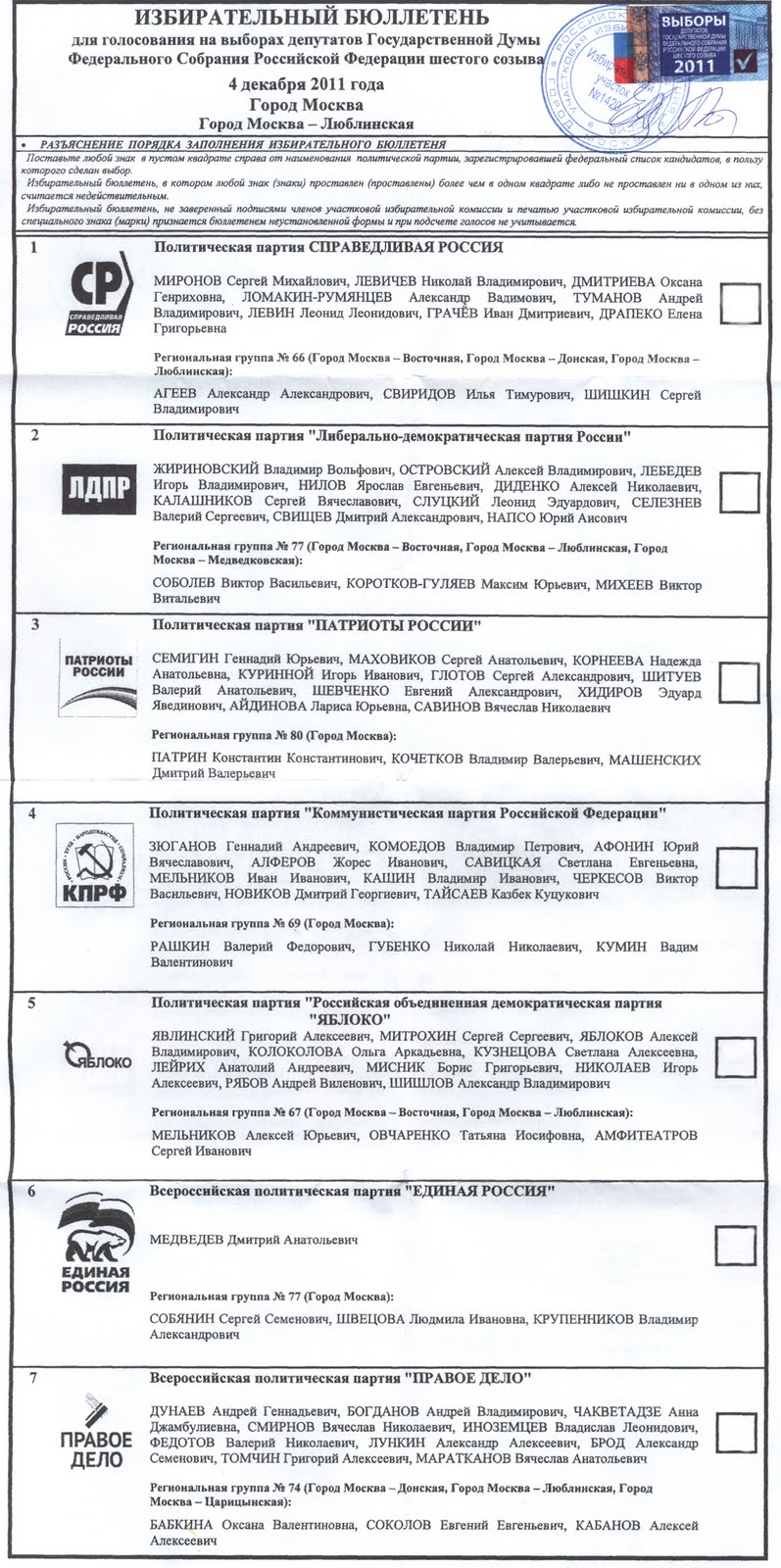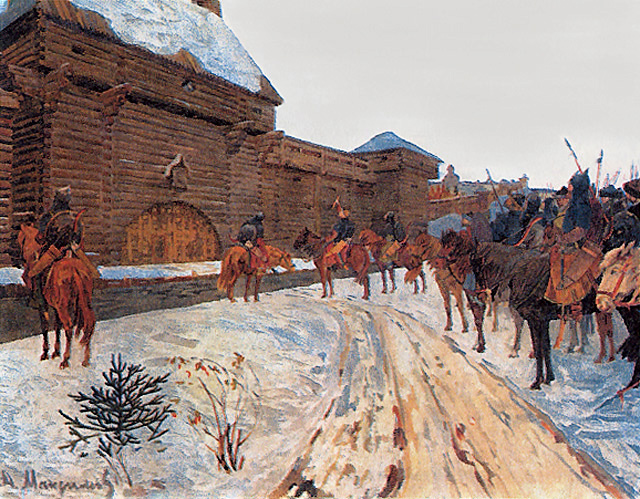|
Georgy Alburov
Georgy Alburov (, born October 9, 1989, Ufa, USSR) is a Russian political and social activist, journalist, and blogger. Up to 2021, together with Maria Pevchikh, he was a head of the investigation department at the Anti-Corruption Foundation founded by Alexey Navalny in 2011. At the time when Alburov headed the department, the FBK released the investigative films " Chaika" (2015) and "He Is Not Dimon to You" (2017). Biography Georgy Alburov was born on October 9, 1989, in Ufa. In 2007, he moved to Moscow to study political science at the Higher School of Economics. He began participating in various political actions and protests in 2008. In 2009, he was present at the civic protests known as Strategy-31, advocating for people's right to peaceful assembly in Russia. In 2011, Alburov met Alexei Navalny for the first time at the «Anti-Seliger» alternative political forum, they became more familiar later that year, when Navalny was sued for defamation by entrepreneur Vladlen ... [...More Info...] [...Related Items...] OR: [Wikipedia] [Google] [Baidu] |
Bashkortostan
The Republic of Bashkortostan or Bashkortostan ( ba, Башҡортостан Республикаһы, Bashqortostan Respublikahy; russian: Республика Башкортостан, Respublika Bashkortostan),; russian: Респу́блика Башкортоста́н, r=Respublika Bashkortostan, p=rʲɪsˈpublʲɪkə bəʂkərtɐˈstan also unofficially called Bashkiria (russian: Башкирия, tr. Bashkiriya), is a republic of Russia located between the Volga and the Ural Mountains in Eastern Europe. It covers and has a population of 4 million. It is Russia's 7th most populous federal subject and most populous republic. Its capital and largest city is Ufa. Bashkortostan was established on .Национально-государственное устройство Башкортостана, 1917–1925 гг: Общее введение и Том 1 // Билал Хамитович Юлдашбаев, Китап, 2002, , 9785295029165Хрестоматия по ... [...More Info...] [...Related Items...] OR: [Wikipedia] [Google] [Baidu] |
2011 Russian Legislative Election
Legislative elections were held in Russia on 4 December 2011. At stake were the 450 seats in the 6th State Duma, the lower house of the Federal Assembly (the legislature). United Russia won the elections with 49.32% of the vote, taking 238 seats or 52.88% of the Duma seats. This result was down from 64.30% of the vote and 70% of the seats in the 2007 elections. The Communist Party of the Russian Federation received 19.19% of the vote and 92 seats, while A Just Russia received 13.24% and 64 seats, with the Liberal Democratic Party of Russia getting 56 seats with 11.67% of the vote. Yabloko, Patriots of Russia and Right Cause did not cross the 7% election threshold. The list of parties represented in the parliament did not change. United Russia lost the two-thirds constitutional majority it had held prior to the election, but it still won a majority of seats in the Duma, even though it had slightly less than 50% of the popular vote. The Communist Party, Liberal Democratic P ... [...More Info...] [...Related Items...] OR: [Wikipedia] [Google] [Baidu] |
Tomsk
Tomsk ( rus, Томск, p=tomsk, sty, Түң-тора) is a city and the administrative center of Tomsk Oblast in Russia, located on the Tom River. Population: Founded in 1604, Tomsk is one of the oldest cities in Siberia. The city is a notable educational and scientific center with six state universities consisting of over 100,000 students, including Tomsk State University, the oldest university in Siberia. History Tomsk originated with a decree by Tsar Boris Godunov in 1604 after , the Tatar duke of , asked for the Tsar's protection against Kirghiz bandits. The Tsar sent 200 Cossacks under the command of and Gavriil Ivanovich Pisemsky to construct a fortress on the bank of the Tom River, overlooking what would become the city of Tomsk. Toian ceded the land for the fortress to the Tsar. [...More Info...] [...Related Items...] OR: [Wikipedia] [Google] [Baidu] |
Poisoning Of Alexei Navalny
On 20 August 2020, Russian opposition figure and anti-corruption activist Alexei Navalny was poisoned with a Novichok nerve agent and was hospitalized in serious condition. During a flight from Tomsk to Moscow, he became ill and was taken to a hospital in Omsk after an emergency landing there, and put in a coma. He was evacuated to the Charité hospital in Berlin, Germany, two days later. The use of the nerve agent was confirmed by five Organisation for the Prohibition of Chemical Weapons (OPCW) certified laboratories. On 7 September, doctors announced that they had taken Navalny out of the induced coma and that his condition had improved. He was discharged from the hospital on 22 September 2020. The OPCW said that a cholinesterase inhibitor from the Novichok group was found in Navalny's blood, urine, skin samples and his water bottle. At the same time, the OPCW report clarified that Navalny was poisoned with a new type of Novichok, which was not included in the list of contr ... [...More Info...] [...Related Items...] OR: [Wikipedia] [Google] [Baidu] |
Lyubov Sobol
Lyubov Eduardovna Sobol (russian: link=no, Любо́вь Эдуа́рдовна Со́боль, née Fedenyova, ; born 13 September 1987) is a Russian opposition politician, lawyer and a member of the Russian Opposition Coordination Council (2012–2013). She produces the YouTube channel "Navalny Live" of Alexei Navalny. Sobol was a lawyer of the Anti-Corruption Foundation until its closure in 2021. Biography Sobol was born on 13 September 1987 in Lobnya, Moscow Oblast, Russian SFSR. In 2004, she graduated from the gymnasium class of a secondary school with a silver medal, and entered the Institute of Jurisprudence of the State Law Academy in Moscow. In parallel with her studies, she worked in the Presnensky District Court of Moscow as secretary of the court session and as an assistant to the judge. In 2006, she entered the Law Faculty of the Moscow State University graduating with honours in 2011. In 2011 and 2012, she took part in various forms of civil-political activi ... [...More Info...] [...Related Items...] OR: [Wikipedia] [Google] [Baidu] |
Mosgortrans
Mosgortrans ( rus, Мосгортранс) is a state-owned company operating bus and electrical bus networks in Moscow and the Moscow Oblast Moscow Oblast ( rus, Моско́вская о́бласть, r=Moskovskaya oblast', p=mɐˈskofskəjə ˈobləsʲtʲ), or Podmoskovye ( rus, Подмоско́вье, p=pədmɐˈskovʲjə, literally " under Moscow"), is a federal subject of R .... See also * Mostransavto * Trams in Moscow References External links Official site of the company Bus companies of Russia Transport in Moscow Service companies of the Soviet Union Transport in the Soviet Union Intermodal transport authorities Companies based in Moscow Unitary Enterprises of Russia {{bus-company-stub ... [...More Info...] [...Related Items...] OR: [Wikipedia] [Google] [Baidu] |
Moscow Metro
The Moscow Metro) is a metro system serving the Russian capital of Moscow as well as the neighbouring cities of Krasnogorsk, Reutov, Lyubertsy and Kotelniki in Moscow Oblast. Opened in 1935 with one line and 13 stations, it was the first underground railway system in the Soviet Union. , the Moscow Metro, excluding the Moscow Central Circle, the Moscow Central Diameters and the Moscow Monorail, has 250 stations (287 with Moscow Central Circle) and its route length is , making it the fifth-longest in the world and the longest outside China. The system is mostly underground, with the deepest section underground at the Park Pobedy station, one of the world's deepest underground stations. It is the busiest metro system in Europe, and is considered a tourist attraction in itself. Operations The Moscow Metro, a state-owned enterprise, is long and consists of 15 lines and 250 stations organized in a spoke-hub distribution paradigm, with the majority of rail lines running ... [...More Info...] [...Related Items...] OR: [Wikipedia] [Google] [Baidu] |
2019 Moscow City Duma Election
Election to the 7th convocation of the Moscow City Duma took place on the United Voting Day on 8 September 2019. The elections were held in a first-past-the-post system: 45 deputies were elected in 45 single-member constituencies. The term of the new Duma will be five years. Background and preparations The Moscow City Election Commission organizes 3,616 polling stations, of which 3,440 - at the places of residence, 176 - at places of temporary residence (hospitals, sanatoriums, places of temporary detention of suspects and accused, and other places of temporary stay). Candidates for registration must collect voter signatures in their support in the amount of 3% of all constituency voters (from 4,500 to 5,500 signatures). However, regardless of whether a candidate has enough valid signatures, a candidate will not be on the ballot if more than 10% of the signatures are considered flawed by the Moscow City Election Commission (MCEC). Candidates nominated by political parties r ... [...More Info...] [...Related Items...] OR: [Wikipedia] [Google] [Baidu] |
2019 Moscow Protests
Starting from July 2019 numerous approved and unapproved rallies in Moscow (also known as part of the political crisis) began, caused by the situation with the 2019 Moscow City Duma elections. Widespread public protests were triggered by numerous authorities' violations, claimed by the independent opposition candidates, during the registration procedure. Rallies on Sakharov Avenue on 20 July and 10 August 2019 became the largest political rallies in Russia since the 2011–2013 Russian protests, 2011–2013 protests. The July 27 rally established a record on number of detainees: 1373 people were detained. The subsequent appeals of the MCEC's decisions to the Central Election Commission of the Russian Federation, CEC by the independent candidates didn't lead to any results. The protests were accompanied by massive administrative arrests of unregistered independent candidates and two criminal cases: the obstructing the work of election commissions case and the riots case (also know ... [...More Info...] [...Related Items...] OR: [Wikipedia] [Google] [Baidu] |
Street Art
Street art is visual art created in public locations for public visibility. It has been associated with the terms "independent art", "post-graffiti", "neo-graffiti" and guerrilla art. Street art has evolved from the early forms of defiant graffiti into a more commercial form of art, as one of the main differences now lies with the messaging. Street art is often meant to provoke thought rather than rejection among the general audience through making its purpose more evident than that of graffiti. The issue of permission has also come at the heart of street art, as graffiti is usually done illegally, whereas street art can nowadays be the product of an agreement or even sometimes a commission. However, it remains different from traditional art exposed in public spaces by its explicit use of said space in the conception phase. Background Street art is a form of artwork that is displayed in public on surrounding buildings, on streets, trains and other publicly viewed surfaces. Man ... [...More Info...] [...Related Items...] OR: [Wikipedia] [Google] [Baidu] |
Vladimir, Russia
Vladimir ( rus, Влади́мир, p=vlɐ'dʲimʲɪr, a=Ru-Владимир.ogg) is a city and the administrative center of Vladimir Oblast, Russia, located on the Klyazma River, east of Moscow. It is served by a railway and the M7 motorway. Population: History Vladimir was one of the medieval capitals of Russia, with significant buildings surviving from the 12th century. Two of its Russian Orthodox cathedrals, a monastery, and associated buildings have been designated as among the White Monuments of Vladimir and Suzdal, a UNESCO World Heritage Site. In the past, the city was also known as Vladimir-on-Klyazma () and Vladimir-Zalessky (), to distinguish it from another Vladimir in Volhynia (modern Ukraine). Foundation The founding date of Vladimir is disputed between 990 and 1108. In the ''Novgorod First Chronicle'', Vladimir is mentioned under the year 1108, and during the Soviet period, this year was decreed to be its foundation year with the view that attributes the f ... [...More Info...] [...Related Items...] OR: [Wikipedia] [Google] [Baidu] |


.jpg)
.jpg)

_144614.jpg)
.jpg)
